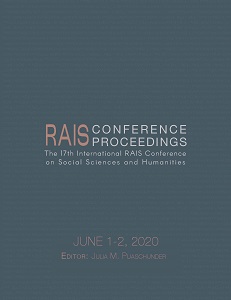Climate Change and Human Choice: Measuring the Nudging
Climate Change and Human Choice: Measuring the Nudging
Author(s): Byambasuren Lkhagvadorj, Javzandolgor Purevsuren, Amgalan Bazargarid
Subject(s): Social differentiation, Human Ecology
Published by: Scientia Moralitas Research Institute
Keywords: Nudge theory; CO2 emission; world warming;
Summary/Abstract: The purpose of this study was to define how climate change is changing in response to positive and negative human behavior. Climate change, in general, refers to changes that take place over a period of tens of thousands of years, involving a particular region or part of the world without human intervention. Climate change takes many forms, depending on the region and the industry in which it operates. The effects of global warming, drinking water shortages, endangered species, and extinction have begun to affect the world's attention and daily lives. And the Nudge effect has become widespread as people's tendency to change their choices has spread. In the last decade, however, climate change has accelerated due to human activities. Since 2008, the effects of the Nudge have had a profound effect on the lives of powerful people. The word nudge means to push lightly or gently stab into the ribs, especially with an elbow. The biggest example is people making smart and healthy choices to reduce greenhouse gas emissions. Choosing the right food can reduce food waste. Greenhouse gas emissions vary from the food we eat and the way we process it. We estimated multiple regression model for CO2 emissions, GDP growth, energy consumption and factors of human behavior about climate changing data from 1959 to 2018. We found that compared to previous years, greenhouse gas emissions were 4.2 billion square meters less than in previous years. This is a very important result of our research, and shows that the global response to climate change since 1992 has been effective. The use of electric magnes, becoming a vegetarian, riding a bicycle, and becoming a minimalist are the result of Nudge effect. By choosing to be a vegetarian, the level of CO2 emissions from food is greatly reduced. The fact that greenhouse gas emissions from food waste are equivalent to greenhouse gas emissions from electric vehicles, so the Nudge effect suggests that the results are positive.
Book: Proceedings of the 17th International RAIS Conference on Social Sciences and Humanities
- Page Range: 311-318
- Page Count: 8
- Publication Year: 2020
- Language: English
- Content File-PDF

